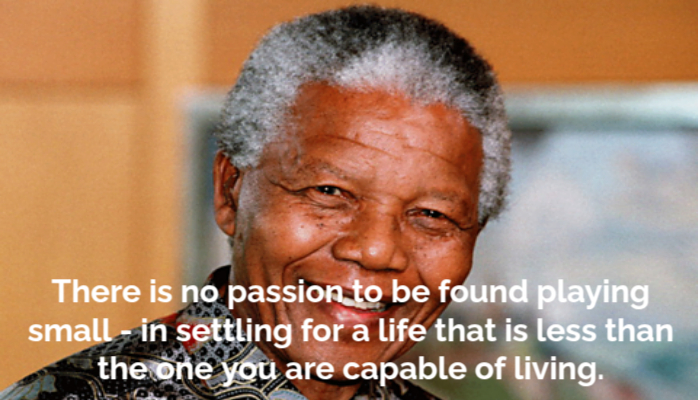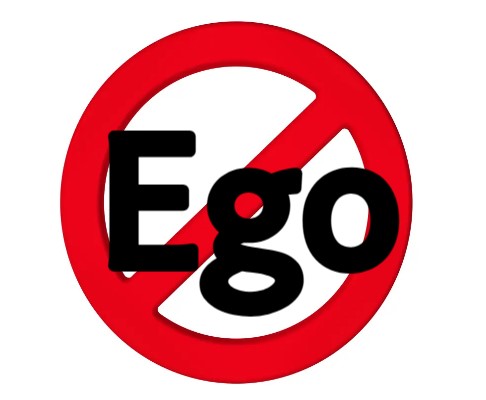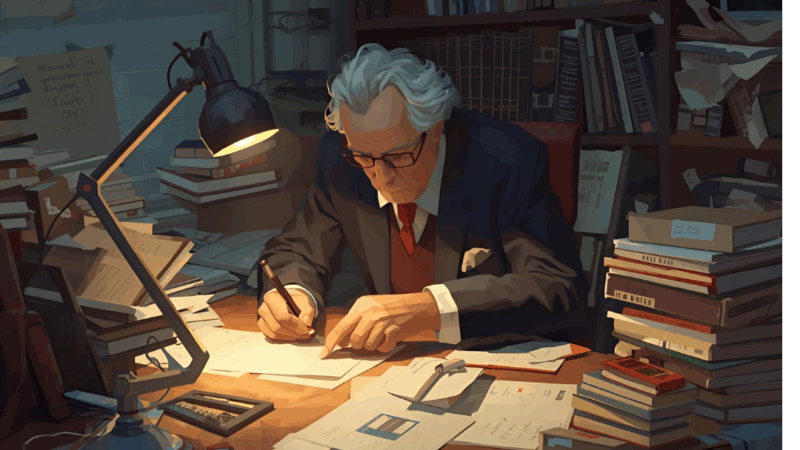The Power of Stepping Back: The Silent Discipline of a Man’s Growth

Sometimes stepping back, remaining silent and being introspective can be a powerful move. In fact, there comes a time in every man’s life when the noise becomes too loud, not only the noise of the world, but the noise within, and this move becomes inevitable. The constant motion, the ceaseless striving, the weight of expectation all begin to drown out the quiet voice that once guided him.
Today’s world glorifies speed and hustle until stepping back feels almost like an act of rebellion. Yet, for the man who seeks true growth and lasting strength, it is in the moments of retreat that he often finds his greatest advance. Truthfully, our lives are a caricature of daily battles.
Understand, though, that stepping back is not quitting. It is taking a pause long enough to see. It is withdrawing, not from the world, but into oneself, into that deep, unspoken place where clarity and conviction are born. Great men throughout history have understood this truth. That silence is not emptiness; it is preparation.
Lessons from the Past
Take Marcus Aurelius, the Roman Emperor, a man whose empire stretched across continents yet who spent his nights writing reflections to himself. Not decrees, not speeches, but meditations. His words were never meant for an audience, yet centuries later, they remain a manual for the soul. Amidst the chaos of wars and politics, he stepped back nightly into solitude to remind himself what truly mattered. That is the true definition of virtue, discipline, and humility. His power was not in his throne, but in his restraint.
Modern life leaves little room for such stillness. Every second demands our attention: messages, metrics, meetings, notifications. The modern man’s mind is constantly on display, yet rarely at rest. But if you look closely at those who have achieved greatness that lasts, forget the flash of success, but the kind that endures lifetimes and generations, you’ll notice a common thread: they all knew when to withdraw.
For instance, think of Nelson Mandela, a man who spent 27 years in prison and emerged not bitter, but whole. Isolation became his forge. His solitude was not a void. It became a crucible where he refined his thoughts and his spirit. What others saw as confinement, he used as contemplation, and when he returned to the world, his words carried a depth only silence could give.

What about Kobe Bryant? The great icon who spoke often about his early morning “quiet hours.” While others slept, he was alone on the court, not just practising shots but sharpening his mind. “The solitude of those hours,” he once said, “helped me listen to myself.” His legendary discipline wasn’t just about the physical grind; it was about the mental stillness that allowed him to perform under pressure.
So, to step back is not to escape the world, but perhaps to face it better. It is to clear the fog so you can move with intention. When a man spends time with himself, truly with himself, he begins to see what drives him, what wounds him, what he fears, and what he needs to release. This awareness becomes a lethal weapon.
Reflection turns pain into purpose. It transforms confusion into clarity. And from clarity comes strength, the quiet kind that doesn’t need to shout.
Tenacity for Success
For a man on the journey of success, this discipline is essential. Without reflection, ambition becomes blind. Success without inner stillness becomes a sprint without direction. When you take time to retreat and to listen to your own silence, you start shifting from acting with impulse to insight. Decisions become less about reaction and more about design.
In business, this manifests as vision. The leader who takes time to think deeply often sees patterns others miss. He senses the undercurrents. He knows when to act, but more importantly, when not to. Even great networks are built not just on charisma but on presence, and presence is cultivated in stillness. People gravitate to a man who is grounded, whose words carry the weight of thought.

Stepping back also teaches humility. When you remove yourself from the noise, you remember that the world does not revolve around your striving. You begin to observe life in the details, the rhythms, and the subtleties. You see others more clearly. You listen better. This humility becomes magnetic. It builds trust, and from trust, true networks emerge, ones built not on superficial alliances, but relationships of substance.
It is easy to fill one’s life with motion and call it progress. Harder is the discipline of stillness that demands one to sit alone, without distraction, and confront their own mind. But it is here that men grow. The silence reveals what the noise hides: the insecurities, desires, and truth(s). And once faced, they lose their power.
A man who can sit in silence without flinching becomes dangerous, not because he seeks conflict, but because he no longer fears it. His power becomes internal, and his emotions serve him instead of ruling him. This kind of strength is unshakable.
In Japanese culture, there’s a concept called ma, the space between things. It is interpreted not as emptiness, but presence, just like the pause between notes that makes the music meaningful. A man who steps back embraces his own ma, that is, the space that allows his life’s rhythm to have depth.
Steve Jobs, during his years away from Apple, experienced this kind of ma. Many thought his exile marked the end of his career. Yet, in that absence, he gathered insight, patience, and perspective. When he returned, he did not come back louder, but he came back clearer. The silence between his two careers gave birth to his greatest creations.
Stepping Back in Our Modern Context
So how does one begin to embrace this practice in a modern world that fears, and perhaps knows not, stillness? Start small. Always. Disconnect. Sit in silence each day, ten minutes, an hour, whatever you can give. Reflect, not just on what you’ve done, but why you’ve done it. Ask hard questions. Let discomfort surface. And learn to be comfortable facing it.
Go for long walks without music. Journal without censorship. Spend weekends alone once in a while, not out of isolation, but by intention. Listen to the tone of your own thoughts. What you find there will tell you more about yourself than any success or failure ever could.
And when you return to the world, to your work, your relationships, your ambitions, et cetera, you will come back sharper. You will move differently. You will listen more, speak less, and act with precision. Others will sense it, even if they can’t name it.

For in that silence, you will have found your centre, the still point that doesn’t sway with circumstance. Success will no longer define you; it will reflect you. Challenges will no longer intimidate you; they will refine you. You will understand that stepping back is not the opposite of progress, but the foundation of it.
The man who learns to embrace solitude, to dwell in silence and emerge with clarity, becomes unbreakable. He no longer chases validation because he has already met himself. His power lies not in how much he speaks or does, but in how deeply he knows.
In the end, growth is not about adding more, but about seeing more. And to see more, you must sometimes step back. The mountain does not reveal its shape to those climbing it, but to those who pause and look from afar.
So, step back. Sit in silence. Listen. Reflect. The noise will always be there, but the man who learns to rise above it, who can hold stillness in a world that never stops moving, has already won the quietest and most important battle of all.






